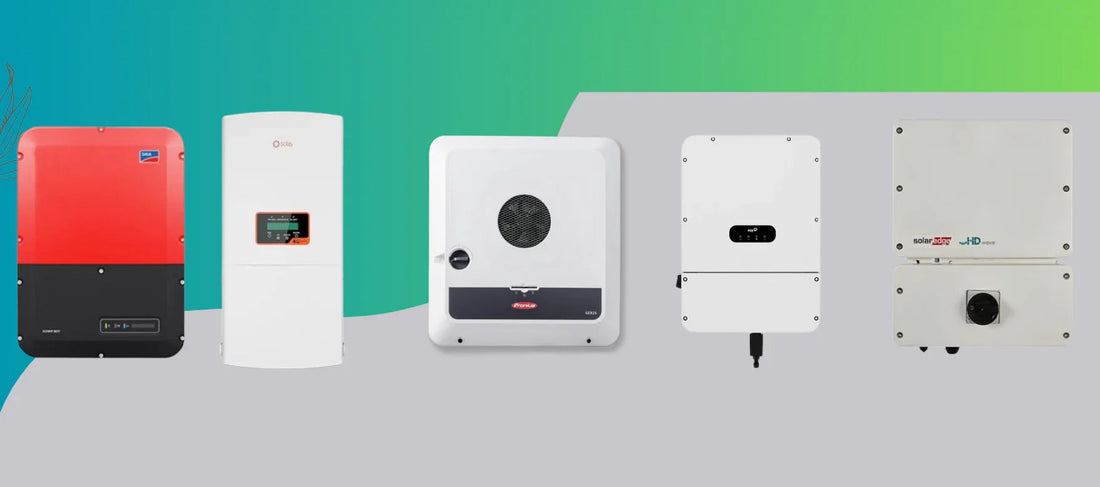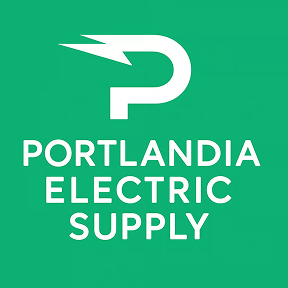
Top 10 Solar Inverter Manufacturers: Leading Solar Panel Innovators 2025
Share
Solar Inverter Manufacturers Leading the Market in 2025 with Cutting-Edge Solar Technology
As the demand for solar power continues to rise, the solar inverter market is dominated by leading manufacturers like JA Solar, Canadian Solar, Trina Solar, and Jinko Solar. These companies deliver innovative solar products and solutions for various applications, including off-grid systems, enhancing their offerings with advanced inverter technology and solar batteries.
In 2025, manufacturers such as Tongwei Solar and WHC Solar are set to shape the global solar inverter landscape by focusing on cutting-edge solar PV technologies, significantly improving the efficiency and reliability of solar installations.
What are the Top Solar Inverter Manufacturers in the World?
Leading global solar inverter manufacturers such as SMA, SolarEdge, and Huawei specialize in PV inverters that enhance solar project performance. Their innovative technologies integrate seamlessly with solar panels, maximizing energy output and supporting solar applications like water pumps and battery storage.
The global solar inverter market is expanding rapidly as manufacturers continuously develop solutions that cater to diverse needs, ensuring every solar project can leverage advanced and reliable technology.
Who are the Best Solar Inverter Manufacturers?
Selecting the right solar inverter is crucial. Many of the world's largest solar panel manufacturers also produce inverters, offering integrated solar solutions. Notably, some manufacturers provide specialized off-grid solutions, combining batteries with solar inverters to offer comprehensive residential and commercial energy solutions.
What Makes a Solar Inverter Manufacturer Stand Out?
A solar inverter manufacturer excels through innovation, quality, and product range. Leading manufacturers incorporate advancements in solar energy storage, photovoltaic technology, and smart features that optimize energy production, alongside comprehensive solutions such as solar trackers and seamless panel installation.
What are the Top 10 Solar Inverter Manufacturers for 2025?
As of early 2025, the leading U.S. solar inverter manufacturers include:
- Enphase Energy - Fremont, CA
- SolarEdge Technologies - Fremont, CA
- SMA America - Rocklin, CA
- Tesla Energy - Palo Alto, CA
- Yaskawa Solectria Solar - Lawrence, MA
- Tigo Energy - Campbell, CA
- Fronius USA - Portage, IN
- Chilicon Power - California
- OutBack Power - Arlington, WA
- APsystems - Seattle, WA
How to Choose the Best Solar Inverter?
Choosing the best solar inverter involves considering inverter type (string, micro, or power optimizers), efficiency rating, warranty length, and user reviews. Each inverter type offers distinct advantages suited to different installation conditions and energy goals.
Factors to Consider When Selecting a Solar Inverter
Key factors include matching inverter capacity to solar panel output, choosing the appropriate inverter type, evaluating efficiency ratings, durability, warranty, compatibility with battery storage, and manufacturer reputation.
Are Hybrid Inverters Better than Standard Solar Inverters?
Hybrid inverters integrate solar panels with battery storage, enhancing energy management and providing flexibility and resilience, particularly useful for backup power. Standard inverters are initially cheaper but less versatile.
What is the Importance of Solar Technology in Inverters?
Solar technology optimizes inverter efficiency, converting DC to usable AC power, maximizing energy yield. Smart inverters further monitor energy in real-time, promoting efficient usage and supporting grid stability.
Largest Solar Panel Manufacturers
Dominated by China-based LONGi Green Energy, JA Solar, and Trina Solar, global leaders also include Canadian Solar and First Solar, specializing in diverse products and sustainability.
7 Largest Solar Panel Manufacturers
- LONGi Green Energy (China)
- JA Solar (China)
- Trina Solar (China)
- Canadian Solar (Canada)
- First Solar (USA)
- JinkoSolar (China)
How Do Largest Solar Panel Manufacturers Impact the Market?
Major manufacturers drive technological advancement, market pricing, and product quality, stimulating economic growth but potentially affecting market competition.
Innovations by Leading Solar Panel Manufacturers
Advances include bifacial solar panels, higher-efficiency monocrystalline cells, integrated solar roof tiles, and IoT-enabled smart panels for real-time energy optimization.
Types of Solar Inverters
Main types include string inverters, microinverters, central inverters for large installations, and power optimizers for enhanced performance without the cost of microinverters.
Difference Between Off-Grid and Grid-Tied Solar Inverters
Off-grid inverters enable energy independence with battery storage. Grid-tied inverters connect to utility grids, using net metering for crediting excess energy but lack backup storage unless supplemented.
Advantages of Using Hybrid Solar Inverters
Hybrid inverters offer flexibility, energy storage capabilities, optimized energy consumption, and advanced monitoring features for improved efficiency and independence.
Identifying the Best Solar Inverter for Your System
Evaluate inverter type, efficiency, warranty, customer reviews, and balance cost versus features for optimal solar investment.
Role of Solar Inverter Manufacturers in the Solar Industry
Manufacturers convert solar DC electricity into usable AC power, innovate inverter technologies, support grid stability, and provide technical expertise and customer service, thus playing a pivotal role in renewable energy growth.
Manufacturers' Contributions to Solar Energy Growth
Manufacturers drive growth through technological innovation, scaling production, economic stimulation, and collaboration on policies supporting renewable energy adoption.
Challenges Facing Solar Inverter Manufacturers
Manufacturers face challenges like rapid technological evolution, regulatory compliance complexities, scalability demands, and intensified competition requiring optimized supply chains and pricing.
